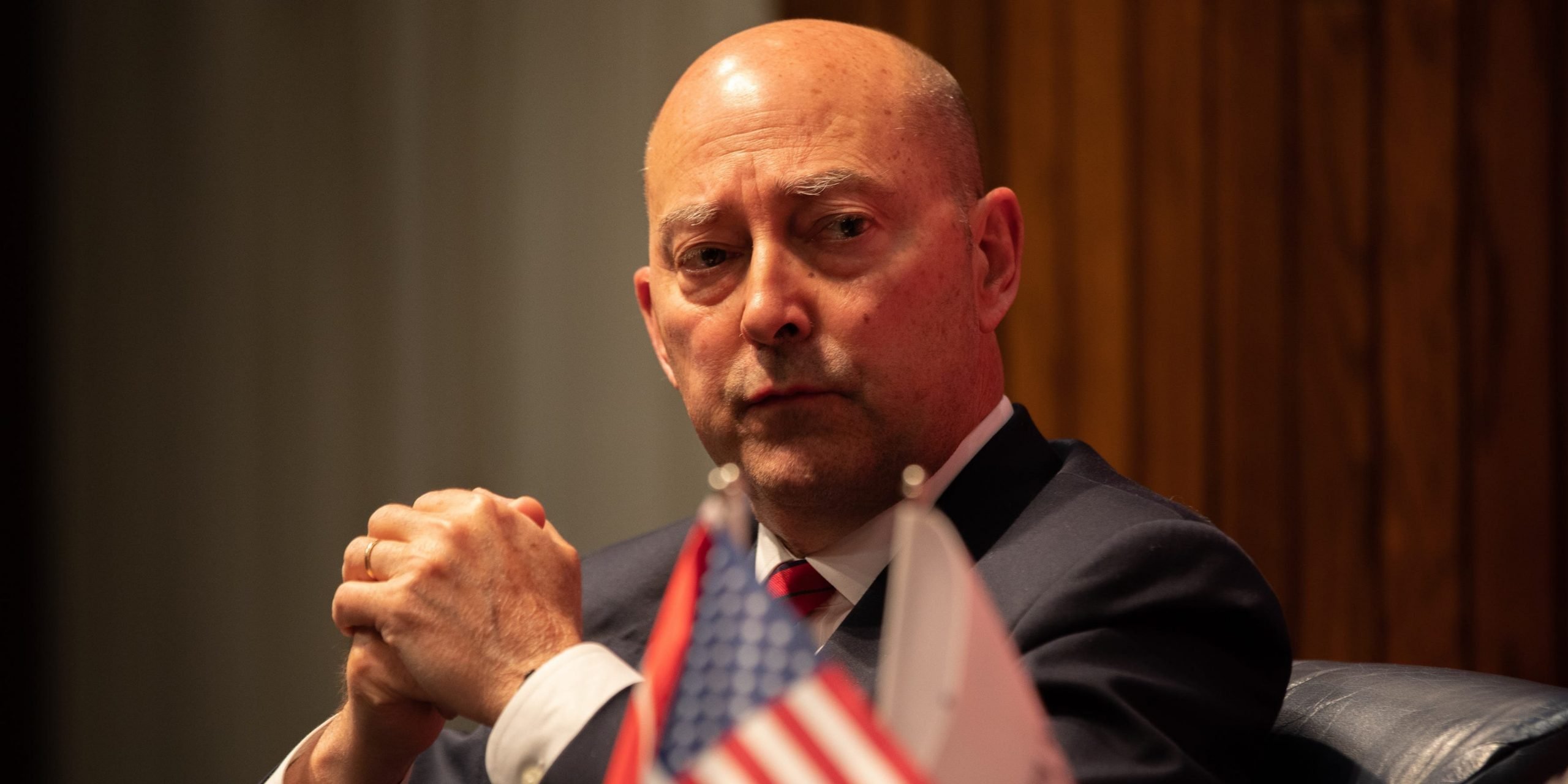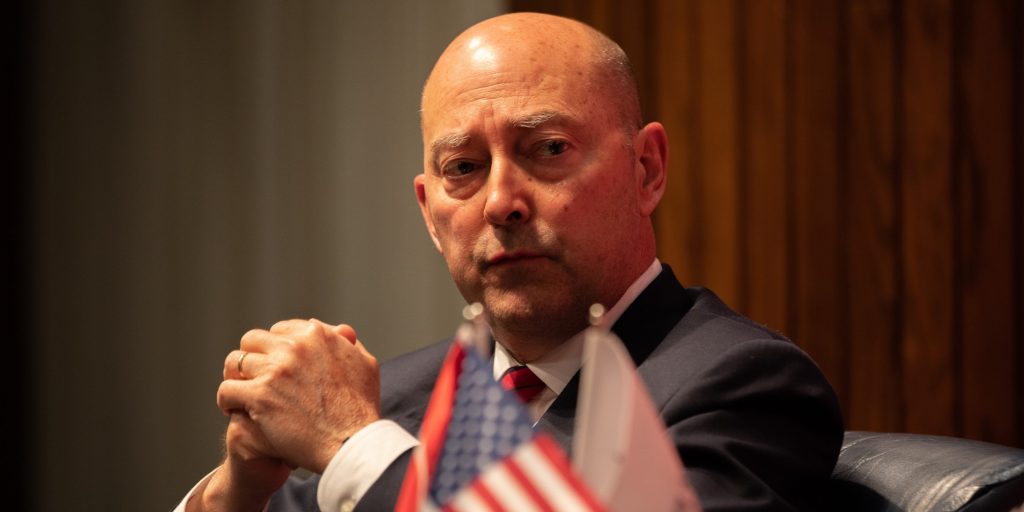
Yasin Ozturk/Anadolu Agency/Getty Images
- Retired Adm. James Stavridis said that the US should have trained the Afghan military differently.
- "We should have trained them to be more like the Taliban, to be lighter, quicker, more lethal," he said.
- Stavridis, who served NATO's supreme allied commander Europe, oversaw air operations in Afghanistan after 9/11.
- See more stories on Insider's business page.
Retired Adm. James Stavridis – who led the USS Enterprise aircraft carrier battle group in the wake of 9/11 and oversaw air operations in Afghanistan as the war began – says that the US should have trained the country's military forces differently.
"We should have recognized that they were not going to be able to reflect the kind of military that we had," said Stavridis in an interview with POLITICO Magazine. "We should have trained them to be more like the Taliban, to be lighter, quicker, more lethal. Not dependent on major equipment, not dependent on exquisite command and control and high-level intelligence. We should have built a different force."
Stavridis offered his reflections, along with 16 other senior military and government officials, in the story by POLITICO on the failures of the past 20 years since the 9/11 attacks.
"We should have learned from the war in Vietnam," he said. "We thought we could train our way out of it. We thought we could leave a competent, capable Afghan military."
Last month, the Afghan military folded in a number of days as Taliban forces swiftly retook the country as the US pulled its forces. The Taliban used intimidation and bribes with local leaders to avoid heavy fighting, and made a host of territorial gains in the northern provinces that have historically resisted them, allowing them to encircle the capital.
The military's sudden collapse surprised President Joe Biden and some of his top advisors, forcing a chaotic American withdrawal that saw an airlift evacuation of over 100,000 people.
The Taliban lacked the air power and heavy vehicles of the Afghan military. Instead, their battlefield commanders used a force of an estimated 80,000 fighters to isolate bases and checkpoints and threaten their garrisons. Its insurgents carried assault rifles like AK-47s and rocket-propelled grenades and moved rapidly around the battlefield in pick-ups and SUVs, with a "mobile reserve exploitation force" of fighters on motorcycles able to rapidly reinforce positions, according to a US-based defense expert who has studied their strategy.
Stavridis went on to serve as NATO Supreme Allied Commander Europe, a top military post within the transatlantic alliance. He was later vetted as a potential running mate for Democratic presidential candidate Hillary Clinton in 2016 and met with then President-elect Trump as he was considered for secretary of state.
"We failed to truly, deeply appreciate the distinct culture, history, linguistic complexity, the overarching challenges of conducting operations in Afghanistan as a foreign army. Those should have been obvious to us. This is a very, very difficult place for foreigners to come in and exert their will," Stavridis said in the interview.
The retired admiral also said that the Iraq war was a mistake.
"Should we have gone into Iraq? No. Because we went there on faulty intelligence, which told us that Saddam Hussein had a nuclear weapons program. That was a mistake," he said. "The measure of any nation is whether it learns both from the mistakes and the successes."
